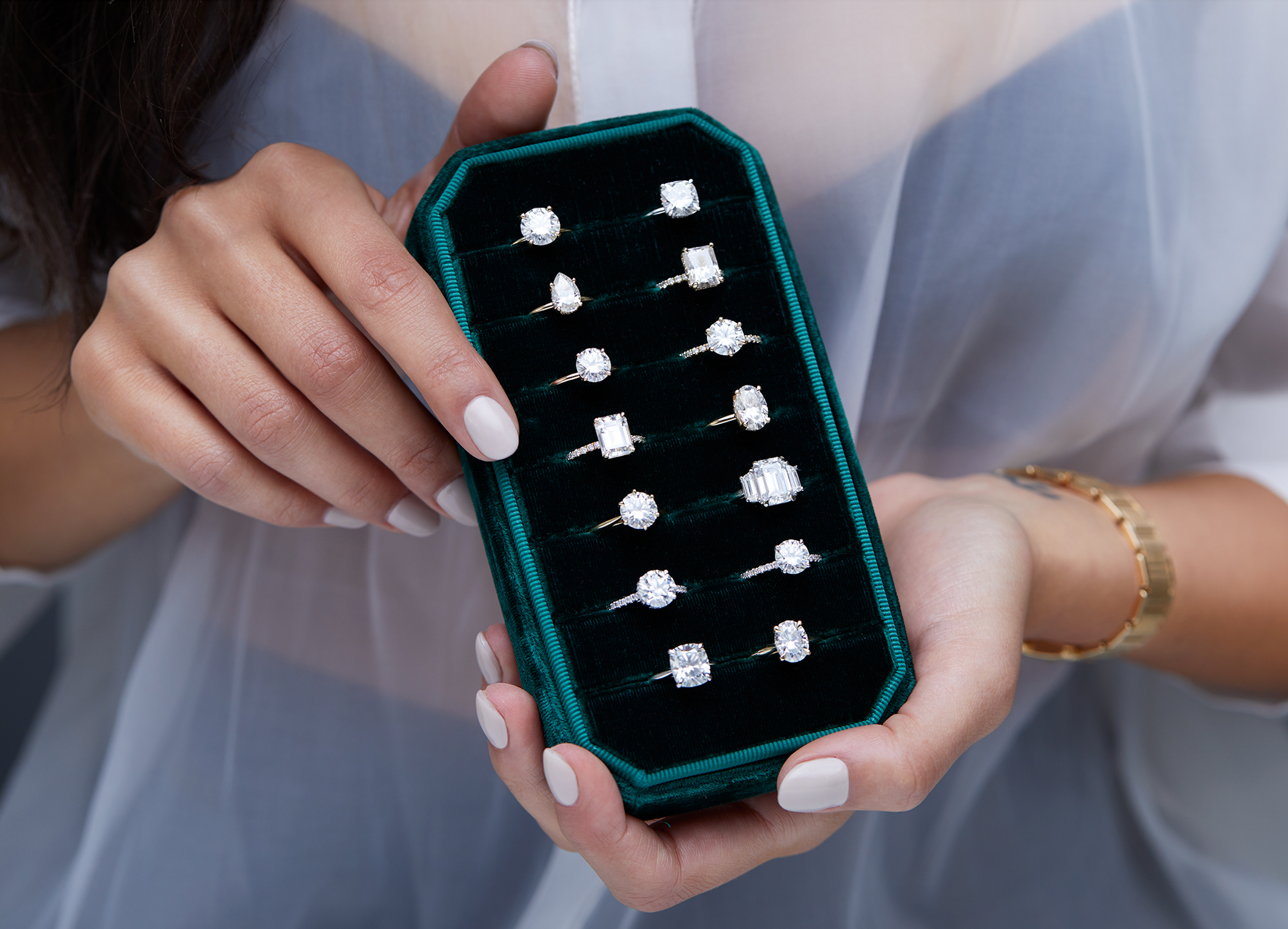
So...
What is Moissanite?
Moissanite is a gemstone born from the stars. We know it's not the nicest word in the English Language BUT it was first discovered in 1893 by a French scientist named Henri Moissan, and he named it after himself so here we are :P He later won the Nobel Prize in Chemistry for his discovery of these microscopic particles in a crater created by a meteorite that fell to earth. That is why we love to refer to it sometimes as a 'space diamond'.
He initially thought that he discovered natural carbon diamonds, but later determined that the crystals were actually composed of Silicon Carbide (whereas diamonds are 9.95% Carbon). Natural moissanite is incredibly rare, much much rarer than diamonds, so the stones today are made in the lab to keep up with demand. After many years of trial and error, the particles Moissan discovered were successfully synthesized into larger crystals that are then used to produce what is now one of the world's most scintillating gemstones.
Brilliance
The most significant optical property affecting a gemstone's brilliance, or sparkle, is the refractive index or RI. The RI of moissanite ranges from 2.65 to 2.69, meaning it displays more brilliance than diamond (with an RI of 2.42) or any other popular gemstone.
Fire
A gemstone's fire is determined by a gemological property called dispersion. Dispersion refers to the prism effect that occurs when pure white light enters a non-opaque object, breaks into spectral (rainbow) colors, and reflects back to the viewer. Moissanites dispersion is 0.104, which exceeds that of any gemstone, including diamond, ruby, sapphire and emerald.
Color & Clarity
WIll it hold the color? There are no likely situations in which the color of moissanite will be permanently changed. Moissanite does undergo a temporary color change when exposed to extreme heat from a jewellers torch during jewellery repair, but with proper bench techniques there will be no lasting damage, and the stone will return to its normal color once it cools.
Hardness
Can moissanite scratch? Technically yes but given that it's the second hardest gemstone, the chances of it happening are so slim that you don't have to worry about it with daily wear. Moissanite is durable, tough and extremely resistant to scratching and abrasion. With a hardness of 9.25, moissanite is harder than all other gemstone except diamond, meaning that it can only be scratched by a diamond or other moissanite stones which is very unlikely to occur.
mm vs. Carat Weight
The carat is the traditional unit of measurement for a diamonds weight. Moissanite is not measured in carats because it weighs approximately 10% less than diamond. For example, a 6.5mm round diamond would weight 1.0ct, while a 6.5mm round moissanite would weight 0.88ct. The two stones would be the same size - 6.5mm in diameter. All stones for sale are listed with their millimeters and the diamond equivalent weight (DEW) in carats.
Gemstone Comparison Chart

Want to speak to someone?
Contact us through the form below

